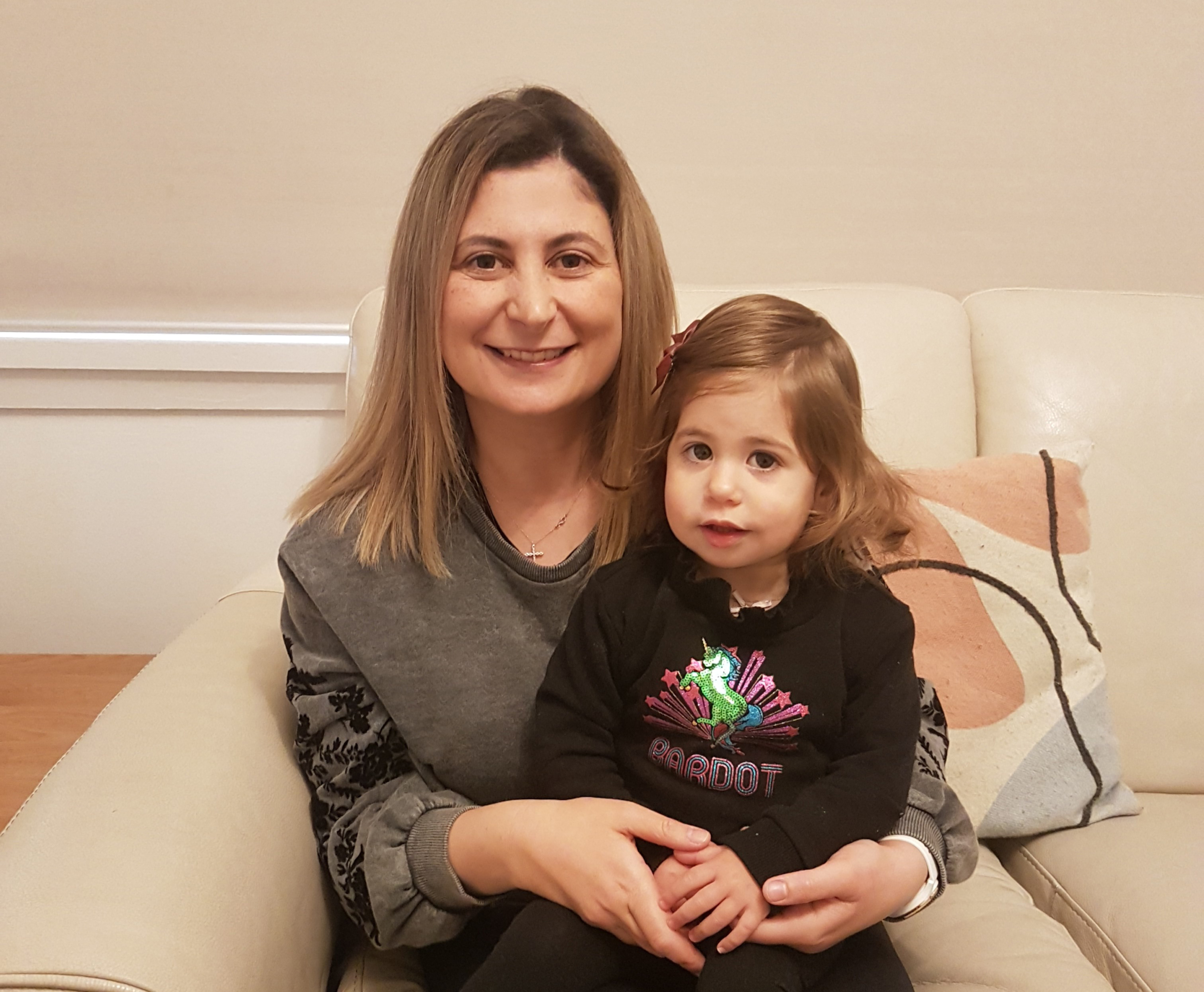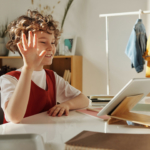
23 Sep A ‘Supermum’ with cochlear implants learns how to help her infant daughter with hypotonia during COVID-19
Young mum, Rania Saab a lawyer from Sydney, was concerned that her infant daughter, Alana, may lag behind in her development due to the disruption of in-person physiotherapy appointments for Alana’s hypotonia. Rania has cochlear implants for her hearing loss. However, using Zoom, Rania was able to connect directly to virtual physiotherapy sessions to help facilitate treatment for her 18-month-old daughter’s muscular condition despite COVID-19.
“As a parent, it’s frightening to think that I might not have been able to help Alana because of my hearing but we’ve made amazing progress because of this new hearing technology. Before these virtual appointments, Alana was unable to stand. She is now able to pull herself up and ‘cruise around’ by holding onto furniture. By streaming sound directly from a Zoom call to my cochlear implants, I have found it easier to hear than in person where the therapists are wearing masks. Their voices are muffled and I can’t lip read,” Rania said.
Rania’s daughter, Alana, was diagnosed with hypotonia, a weakness of muscles in the body, when she was 6 months of age and needs regular specialist treatment to overcome her disability and meet development milestones. Initially, Rania was concerned that she wouldn’t be able to manage her daughter’s ongoing therapy throughout the COVID-19 lockdown, due to having to hear instructions from healthcare professionals virtually via Zoom.
However, this has not been the case, as directly streaming sound from her Bluetooth enabled device to her cochlear implant, has enabled her able to hear instructions and guide her daughter through strengthening exercises at the direction of a physiotherapist on a Zoom call. Alana has flourished during lockdown as a result.
“I know how difficult life was before I had cochlear implants. I hope to raise awareness so that the community better understands that people who cannot hear, may be more isolated and struggling with work and daily necessities, if they don’t have access to the hearing technology that is available, especially during COVID-19.”
According to a recent survey of people with cochlear implants*, 70% per cent are using their hearing technology to make video calls, and 42% conducted virtual appointments with healthcare professionals whilst in lockdown. Additionally, around 30% of cochlear implant recipients surveyed, were able to make video calls, phone calls and use streaming services for the first time.
This has been made possible due to the Cochlear Nucleus 7 Sound Processor invented by Australian Professor Graeme Clark. The multi-channel cochlear implant is an electronic medical device that bypasses the damaged part of the inner ear. Unlike hearing aids, which make sounds louder, cochlear implants send sounds directly to the brain, to help improve the clarity of sound.
*Survey of Cochlear of nearly 100 recipient experiences during the COVID-19 pandemic July 2020
For more information visit:
Cochlear Australia: On cochlear implants and how they work
Aussie Deaf Kids: Aims to empower parents raising a child with hearing loss through online support, information and advocacy.




